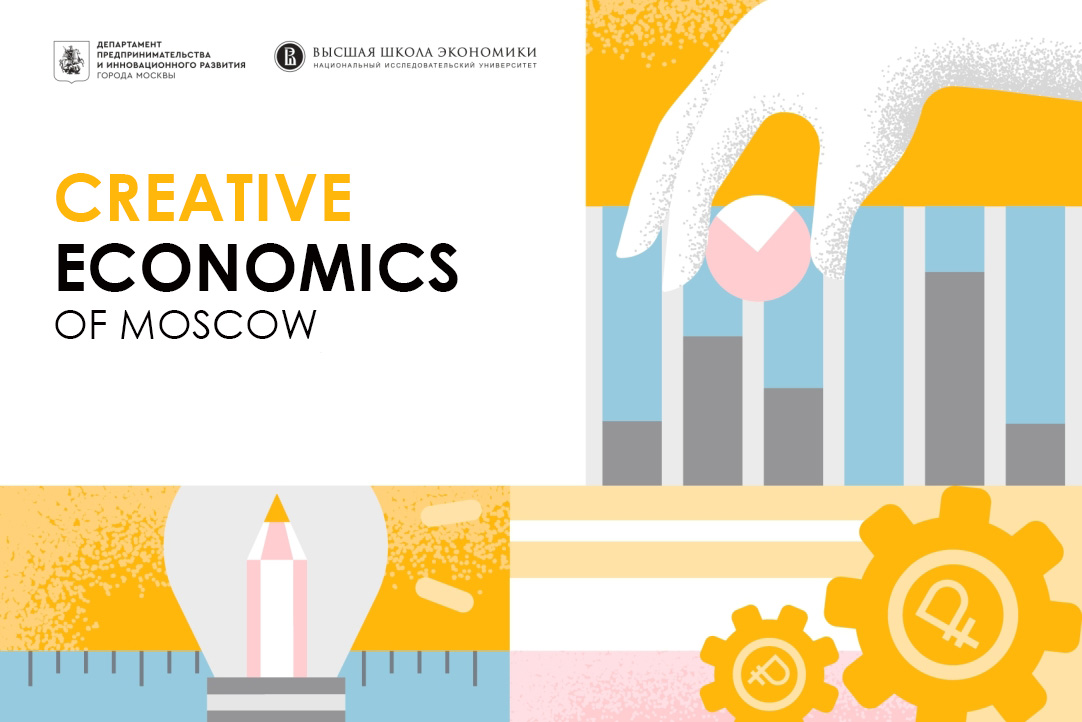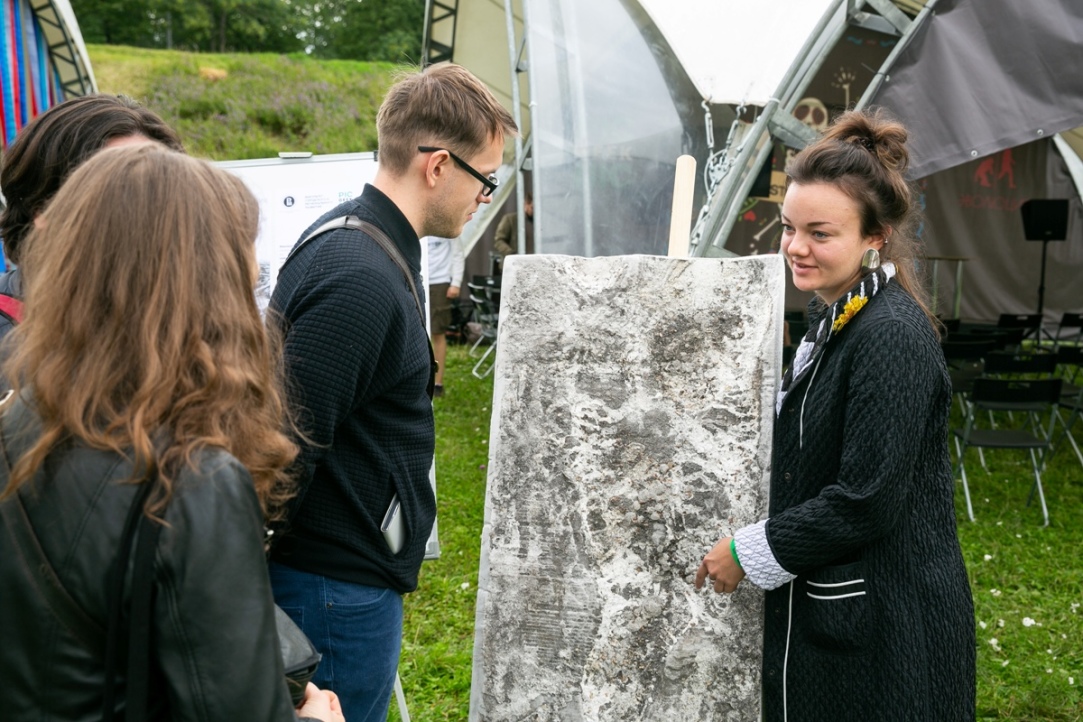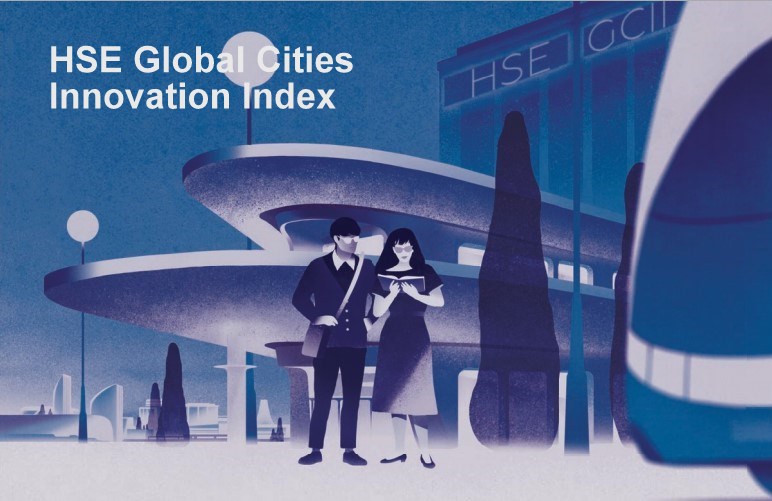
Creative Moscow: Ahead of Hong Kong and Melbourne, but Far behind Beijing and London
Moscow is not only Russia’s official capital, but its creative capital as well. 54% of the added value of the country’s creative industries is generated here. This was one of the findings presented in the report, ‘Moscow’s Creative Economy in Figures’, prepared jointly by HSE researchers and the Moscow Department of Entrepreneurship and Innovative Development.

Yandex and HSE – St. Petersburg to Open a Natural Language Laboratory
The laboratory will study natural language texts, develop deep learning methods for their generation, and analyze computational linguistic data. Yandex, as a project partner, will help attract leading experts in artificial intelligence and data analysis to work in the laboratory on a long-term basis. The laboratory will be headed by Ivan Yamshchikov, Yandex Research Fellow and Associate Professor of Informatics at HSE University – St. Petersburg.

‘We Facilitate High-Speed Car Crashes and Study How Car Engines Work Based on Photos of Flying Debris’
Nikita Kazeev holds a Candidate of Sciences degree (Russian equivalent of a PhD) in Computer Science and a PhD in Physics. He is a Research Fellow at the LAMBDA Laboratory and works at CERN. In an interview with HSE News Service, he talked about what it was like to defend his dissertation in a double doctoral degree programme at HSE University and Sapienza University of Rome, what it is like to conduct research in Geneva, and why it is imperative to communicate with colleagues.

How Modern Robots Are Developed
Today, neuroscience and robotics are developing hand in hand. Mikhail Lebedev, Academic Supervisor at HSE University’s Centre for Bioelectric Interfaces, spoke about how studying the brain inspires the development of robots.

‘Cooperation with R&D Organizations and Universities Is Significantly Distinctive for Advanced Innovators’
The innovation performance of firms depends on their ability to innovate in cooperation with external partners. In their study, HSE researchers found that most of innovation in Russian manufacturing happens in a sort of open processes, but extensive cooperation networks are barely detectable. The study was published in the December issue of Foresight and STI Governance.

HSE Department of Innovation Management Launches Joint Project with Skolkovo
BioMedTech is a business incubator created by the HSE University Department of Innovation Management and Skolkovo biomedical cluster. The aim of this pilot project is to combine scholarly research with the entrepreneurial competencies of the University’s students and teachers for the purpose of launching new business projects in biomedicine.

Fungus and Architecture: HSE Alumna Receives a Patent for Her Invention
During her time at HSE University, alumna Anna Budnikova (MA, Prototyping Future Cities, 2019) developed an innovative project called Mycokarst under the supervision of leading Shukhov Lab expert Elena Mitrofanova. The project’s technology involves using fungal spores to repair karst sinkholes in urban environments. Now Budnikova’s innovation is patented.
.jpg)
Online Games for the Virtual Classroom: Instructors Learn New Tools in Workshops Hosted by Teach for HSE
In early December, Teach for HSE, a programme aimed at helping HSE instructors expand their teaching methods and skills, held a series of master classes on how to integrate online games into one’s teaching. The master class was led by winners of the spring competition held by the Fund for Educational Innovation, and it was open to instructors of all HSE campuses.

From Science Fiction to Designing the Future: Annual Foresight Conference Commences at HSE University
This week, researchers from all over the world have gathered online for the 10th annual International Academic Conference ‘Foresight and STI Policy’ at HSE University. One of the cross-cutting themes of the anniversary forum, which will be held from November 9 to 13, is lessons learned from the pandemic and the crisis’s effects in future scenarios.

HSE University Presents First Global Cities Innovation Index
According to HSE University’s Global Cities Innovation Index, New York and London are the world’s most attractive megacities to innovators implementing creative and technological initiatives. Moscow ranked among the rating’s top ten cities, leading in the areas of ‘Innovation Infrastructure’ and ‘Digital Infrastructure and Services’. HSE researchers presented the index at this year’s Open Innovations Forum.


Applications are submitted until August 17, 2025